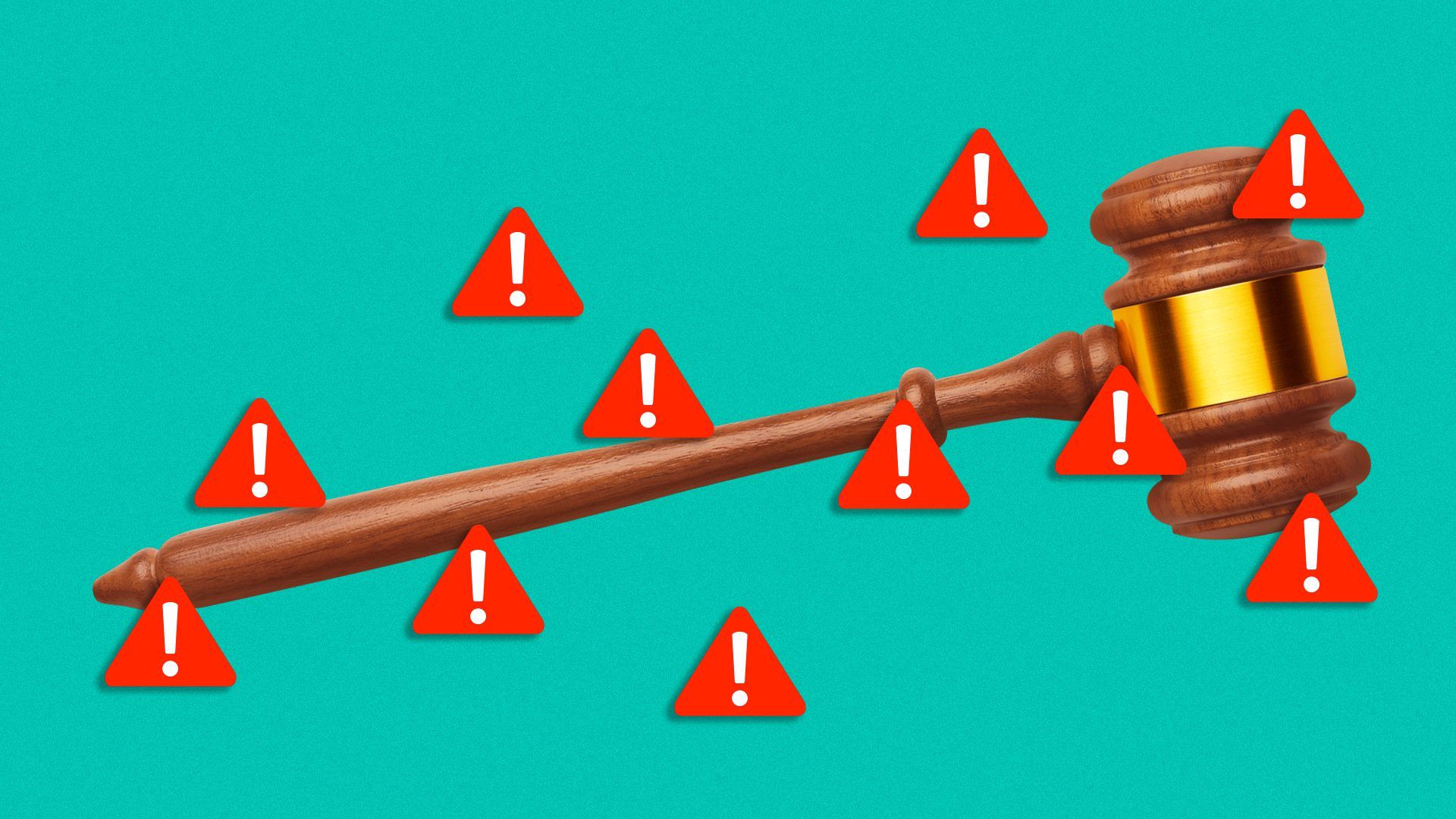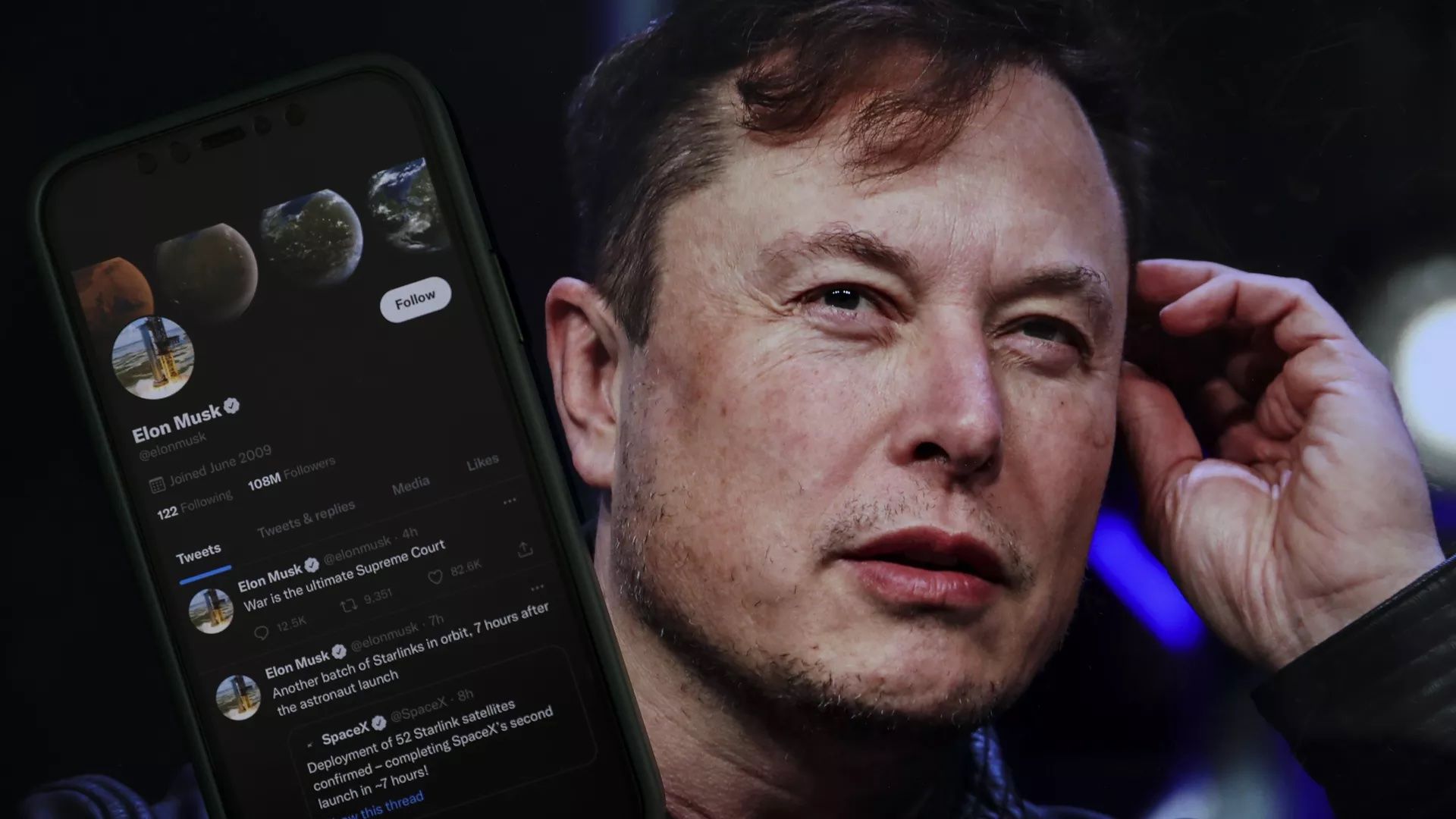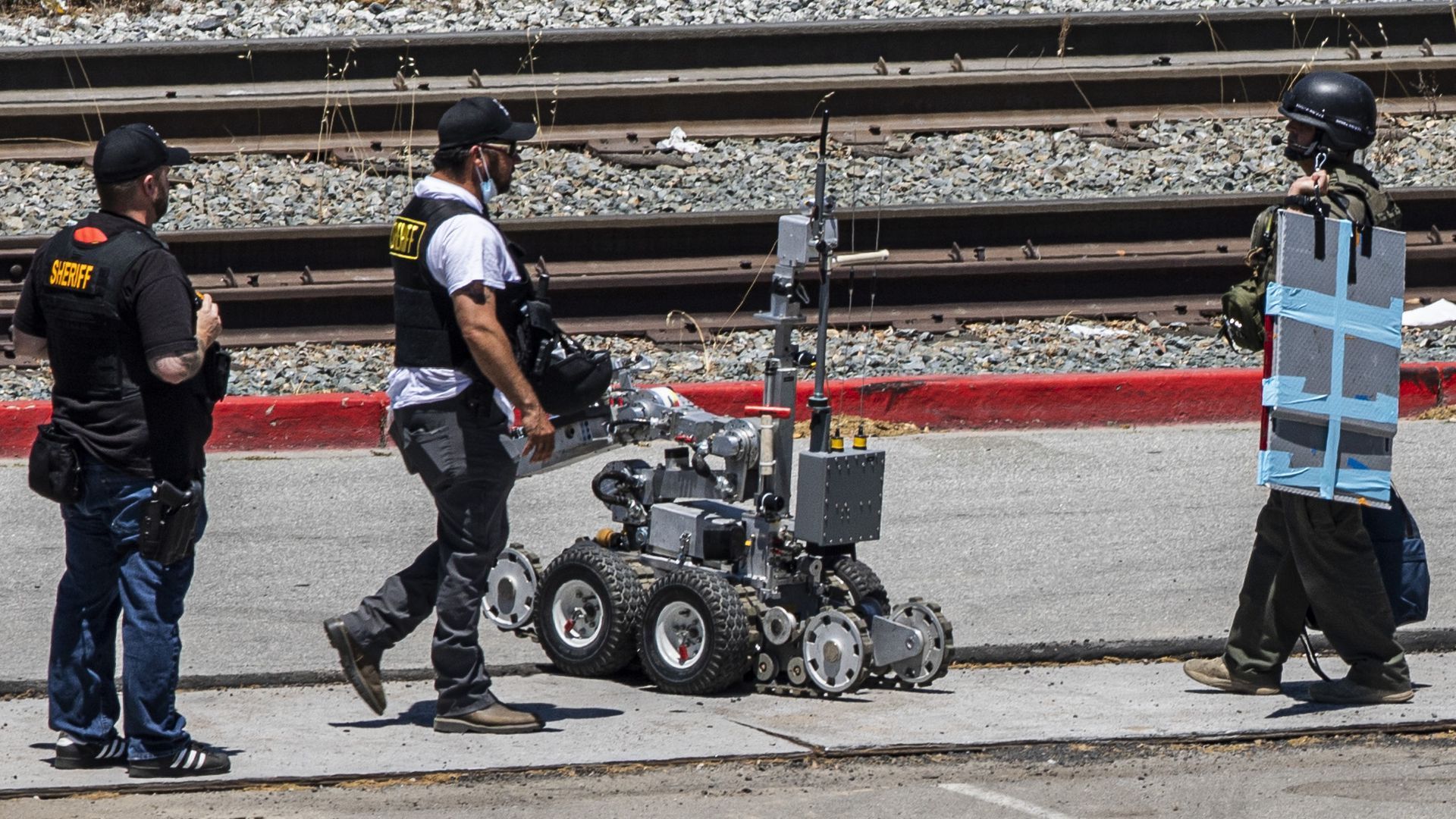| | | | | | | | | | | Axios Login | | By Ina Fried · Dec 01, 2022 | | 🇨🇭 Axios will be at the 2023 World Economic Forum in Davos, Switzerland. Want to attend one of our events? Request an invite. Today's Login is 1,311 words, a 5-minute read. | | | | | | 1 big thing: Tech firms send Supreme Court a warning |  | | | Illustration: Aïda Amer/Axios | | | | Tech firms are warning the Supreme Court that weakening liability protections for online speech could put all types of service providers — including those operating offline — at risk of costly, business-wrecking litigation, Axios' Ashley Gold reports. The big picture: A key law governing online speech is facing its first-ever fundamental tests before the high court. Driving the news: Companies and parties to the suits made early filings and statements this week in two cases that will test long-held practices in the tech industry based on Section 230 of the Communications Decency Act, which largely protects platforms from liability for people's posts. - Twitter, Inc. v. Taamneh asks whether platforms can be held to violate anti-terrorism laws if they have policies against pro-terrorist content but fail to remove all such messages. Twitter, Meta and Google filed briefs in the case this week.
- In Gonzalez v. Google, relatives of victims of an ISIS attack are suing Google-owned YouTube for allegedly helping turn viewers into terrorists. The court must decide whether Section 230's protections apply to the algorithms that YouTube and other platforms use to select what content to show users.
Details: In the Taamneh case, attorneys for Twitter, Google and Meta argue that businesses like rental car companies or banks would also risk legal liability for terrorist attacks if a jury decides they could have done more to root out terrorists using their services. - "By eviscerating any meaningful limitation on aiding-and-abetting liability, it threatens a multitude of third parties with liability and public opprobrium for heinous acts of terrorism that they never knew about, much less supported, and in fact adamantly opposed," Twitter's attorneys write in the Taamneh brief.
In the Gonzalez case, plaintiffs argue that Section 230's protection does not extend to algorithmically created recommendations, since YouTube plays a role in deciding which videos to recommend to users. Google contends Section 230 protects YouTube's methods of organizing users' posts, and weakening the law would only make it harder to filter out terrorism content. - "Through the years, YouTube has invested in technology, teams, and policies to identify and remove extremist content," José Castañeda, a Google spokesperson, told Axios. "Undercutting Section 230 would make it harder, not easier, to combat harmful content — making the internet less safe and less helpful for all of us."
What they're saying: The Gonzalez case "has a very high potential impact with a very small amount of decision makers involved, which makes it a particularly intense decision point," Emma Llansó, director of the Free Expression Project at the Center for Democracy & Technology, told Axios. - Both cases have the potential to affect businesses far beyond tech platforms, she said.
The intrigue: Twitter's defense of its legal immunity and ability to moderate comes as its new owner, Elon Musk, has been rapidly shifting the platform's content policy, promoting what he describes as free speech and reinstating banned users. What's next: Google will file a formal reply in the Gonzalez case by mid-January, with arguments likely happening early next year. - Two other cases involving challenges to state content moderation laws in Texas and Florida may also head to the Supreme Court next year.
|     | | | | | | 2. Musk backs down from Apple assault |  | | | Elon Musk. Photo illustration: Muhammed Selim Korkutata/Anadolu Agency | | | | That fight Twitter CEO Elon Musk began picking with Apple earlier this week? It's off, at least for the moment, after Musk said late Wednesday he'd visited with Apple CEO Tim Cook, who assured him Apple "never considered" booting Twitter from its App Store. - "We resolved the misunderstanding," Musk tweeted.
In the meantime, a chorus of tech execs and D.C. lawmakers critical of Apple had already picked up Musk's refrain and reignited complaints that Apple takes too big a commission from app makers and abuses its power against competitors. Be smart: Musk's "free speech" vision and amnesty plans could still lead to problems with Apple down the road. - The company's App Store rules require apps to maintain some minimum standards of content moderation. Apple hasn't hesitated in the past to boot apps that don't pass muster by, for instance, allowing threats of violence.
|     | | | | | | 3. Exclusive: Roblox nabs Apple exec for key role |  | | | John Stauffer. Image: Roblox | | | | Roblox has hired 23-year Apple veteran John Stauffer to oversee the engineering team responsible for the virtual world's core engine, as I scooped yesterday. Why it matters: Roblox has big aspirations for the company, many of which center on making its core engine able to run on as many devices as possible. Details: Stauffer, who officially starts at Roblox next week, will be a VP of engineering. - Stauffer has spent the past 14 years running Apple's Interactive Media Group, a behind-the-scenes unit that handles a range of multimedia projects across the company, including work on projects including CarPlay, Group FaceTime and AirPlay.
What they're saying: Sturman told Axios that Roblox started its search for an executive to lead the engine team roughly a year ago, seeking someone who really understood how to balance work across servers and devices and could grow a team that will probably approach 1,000 people in a few years' time. - "John got to see Apple grow from a much smaller company," Sturman said. "That's a path we hope/want/expect to be on."
Stauffer, who has three young kids who all play Roblox, said he was intrigued by the challenge, but said he wasn't really looking for a new gig when Roblox reached out. - "It took a little bit to convince me," he said in an interview on Wednesday.
- His kids, meanwhile, are ecstatic, though Stauffer has been quick to remind them that the new job doesn't mean they will all get an endless supply of Robux, the virtual world's in-app currency.
|     | | | | | | A message from Axios | | Subscribe to Axios Sports | | |  | | | | Keep up to date on the latest stats and stories with Axios Sports. Subscribe for free | | | | | | 4. San Francisco readies lethal police robots |  | | | Santa Clara County Sheriff's Office uses a robot similar to one the SFPD owns. Photo: Santiago Mejia/San Francisco Chronicle via Getty Images | | | | San Francisco's police department is getting closer to being able to use robots for lethal force after the city's Board of Supervisors this week voted 8-3 to approve an ordinance on the matter, Axios San Francisco's Megan Rose Dickey reports. What's happening: The legislation, if enacted, would allow police to use remote-controlled robots for deadly force "when risk of loss of life to members of the public or officers is imminent and outweighs any other force option available," per the draft policy. - At a Tuesday Board of Supervisors meeting, SFPD assistant chief David Lazar evoked the mass shooting in Las Vegas in October 2017 as an example of a potential use case for remote-controlled robots using lethal force.
- The lengthy discussion led to two amendments that clarified police must try or consider alternative force methods before using robots for lethal force, and that only the police chief, assistant chief of operations or deputy chief of special operations can authorize the use of robots as a deadly force option.
- SFPD currently has 12 human-controlled robots for purposes such as gaining situational awareness, diffusing potential bombs or helping in hostage negotiations.
The other side: Outside of the public safety questions, these new policing tools raise serious ethical and racial implications. Read the rest. |     | | | | | | 4. Take note | | On Tap - Asana and UIPath are scheduled to report quarterly earnings after the markets close.
Trading Places - Salesforce co-CEO Bret Taylor is stepping down, effective Jan. 31, just a year after being promoted to the role. His exit, the second co-CEO to depart in recent years, once again puts co-founder Marc Benioff as the sole chief executive of the software giant.
ICYMI |     | | | | | | 5. After you Login | | Check out this interactive "doodle" that Google did in honor of video game cartridge pioneer Jerry Lawson's 82nd birthday today. |     | | | | | | A message from Axios | | Subscribe to Axios Sports | | |  | | | | Keep up to date on the latest stats and stories with Axios Sports. Subscribe for free | | | | Thanks to Scott Rosenberg and Peter Allen Clark for editing and Nick Aspinwall for copy editing this newsletter. |  | | Your personal policy analyst is here. | | | | | | Axios thanks our partners for supporting our newsletters. If you're interested in advertising, learn more here.
Sponsorship has no influence on editorial content. Axios, 3100 Clarendon Blvd, Arlington VA 22201 | | | You received this email because you signed up for newsletters from Axios.
Change your preferences or unsubscribe here. | | | Was this email forwarded to you?
Sign up now to get Axios in your inbox. | | | | Follow Axios on social media:    | | | | | |








No comments:
Post a Comment